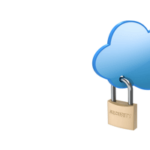JASON, an independent scientific advisory group that provides consulting services to the U.S. government on matters of defense science and technology, was asked by the National Science Foundation (NSF) to “consider what a research program on research security might entail,” including potential content, definitions, and areas of study that could have the most significant impact on the way research security is viewed by both the NSF and the broader federal government. JASON engaged with NSF leadership, law enforcement, members of the academic community, and professional societies to answer key questions posed by the NSF. The discussions resulted in key findings and recommendations, including the examples summarized below:
Findings:
- Definitions to distinguish research security and research integrity
- Sample subject areas that could be included in a program proposal request by the NSF
- Potentially required data and privacy controls for research on research security
Recommendations:
- NSF should assist PIs with data access and in the use of methods for anonymization of data.
- The program should encourage research projects with international organizations that share our research security concerns
- NSF should collaborate with other federal agencies such as NIH, DOE, and NASA to establish a secure database containing information on breaches of research security at universities, private companies, and government laboratories
Visit the NSF Research Security page to view the complete study and explore additional topics in research security, like NSF policies and actions, how NSF addresses violations, foreign interference, and more.







